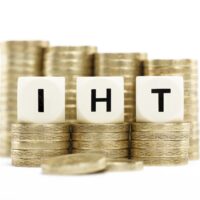
According to the latest figures from HMRC, annual receipts for 2022 to 2023 grew to £7.1bn, which is equal to 0.28 per cent as a proportion of GDP.
From a stamp duty perspective, overall receipts for April 2023 to January 2024 are £12.7bn, which is £4.1bn down on the same period last year.
Annual receipts for 2022 to 2023 rose £700m year-on-year (YOY) to £19.3bn, which HMRC said could be explained by a “combination of increases in average property prices and the end of the stamp duty holiday”.
HMRC said that the uptick in inheritance tax receipts was “likely due to a combination of the recent rises in asset values and the government’s decision to maintain the inheritance nil rate band thresholds at their 2020 to 2021 levels up to and including 2027 to 2028”.
Helen Morrissey, head of retirement analysis at Hargreaves Lansdown, said that inheritance tax receipts were “on track for another record-breaking year”, with HMRC reporting over £7bn in inheritance tax last year and looking “set to do so again, as long-term house price growth and frozen thresholds drag more families into the net”.
She continued: “However, something of a reprieve could be on the cards should the government move to change inheritance in the upcoming Budget. Rumours were rife the Chancellor was looking to slash the headline rate of inheritance tax to 20 per cent in the run-up to last year’s Autumn Statement, and speculation has started up again.
“The jury is out on whether reducing the main rate is the best way to go though. Inheritance is a hated tax, but it is currently only paid by about four per cent of estates. Cutting the main rate could also be seen as benefiting richer estates who would have larger bills to pay.”
Morrissey continued that increasing the long-standing £325,000 threshold, or combining it with the residential nil rate band, could have a wider impact on smaller estates, especially those who have unintentionally passed the threshold due to house price growth, as they could be “lifted out of paying inheritance tax and spare themselves a nasty surprise bill”.
“It would also help ease the burden that falls disproportionally on single people. Increasing thresholds – for instance, increasing gifting allowances – could also encourage more people to think about how their assets could be used to support their family members during their lifetime,” she added.
Use trusts and gifting to mitigate inheritance tax
Stacey Love, tax and estate planning specialist at Canada Life, commented that inheritance has contributed £146m per week to the treasury, and so far this financial year, receipts are up by around six per cent compared to the same period last year.
“If receipts continue on the current trajectory, we’ll be on track to beat last year’s record. Indeed, the Office for Budget Responsibility (OBR) has forecast that HMRC will collect £7.2bn in 2023/24. Of course, all eyes and ears will be on the Spring Budget in a few weeks’ time, to see what, if any, changes are proposed to inheritance tax,” he said.
Love noted that its research showed a quarter of over-55s did not know if their estate would be taxed, and a “complex system plus housing market buoyancy and frozen thresholds could mean more households receiving an unexpected bill from the taxman.
“There are legal means to mitigate paying inheritance tax, though, such as the use of trusts and gifting. Rules around gifting and trusts are nuanced, however, so seeking professional financial advice to help you navigate the system is a good idea,” he said.
Frozen thresholds and high property prices forcing more to pay inheritance tax
Stephen Lowe, group communications director at retirement specialist Just Group, noted that it would see a record total for inheritance tax for a third successive year.
“Frozen thresholds and the increase in property prices over recent years are dragging more households into paying the tax and, while inheritance still only impacts a small proportion of households, the tax bites deep on those estates affected,” he said.
Lowe continued: “We would encourage people to assess the entire value of their estate, including an up-to-date valuation of their property, and familiarise themselves with the inheritance tax thresholds.
“Professional, regulated advice can also help people work out the total value of their estate, calculate how much tax they may be likely to owe and understand what options they have to manage their potential tax liability.”















